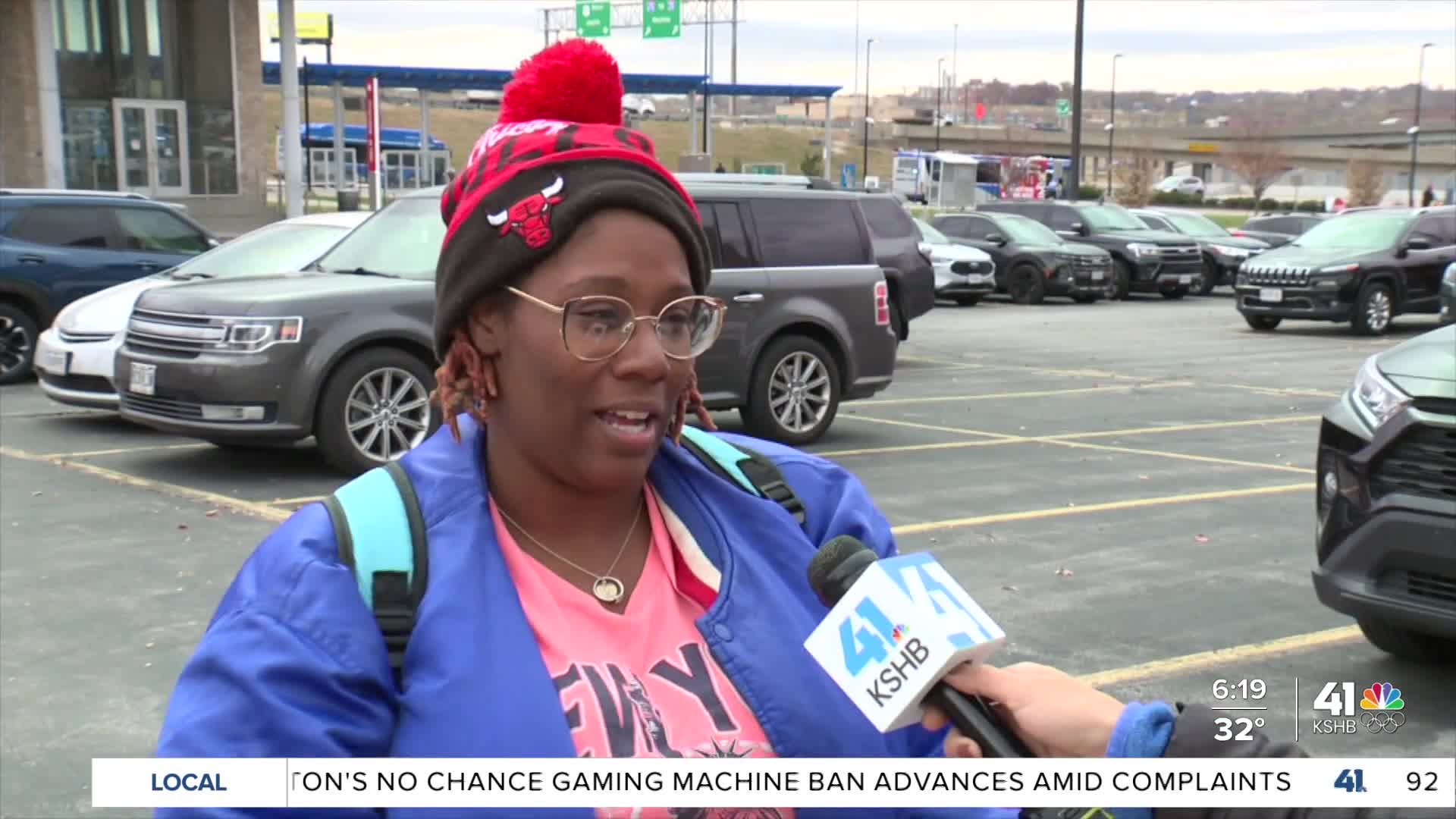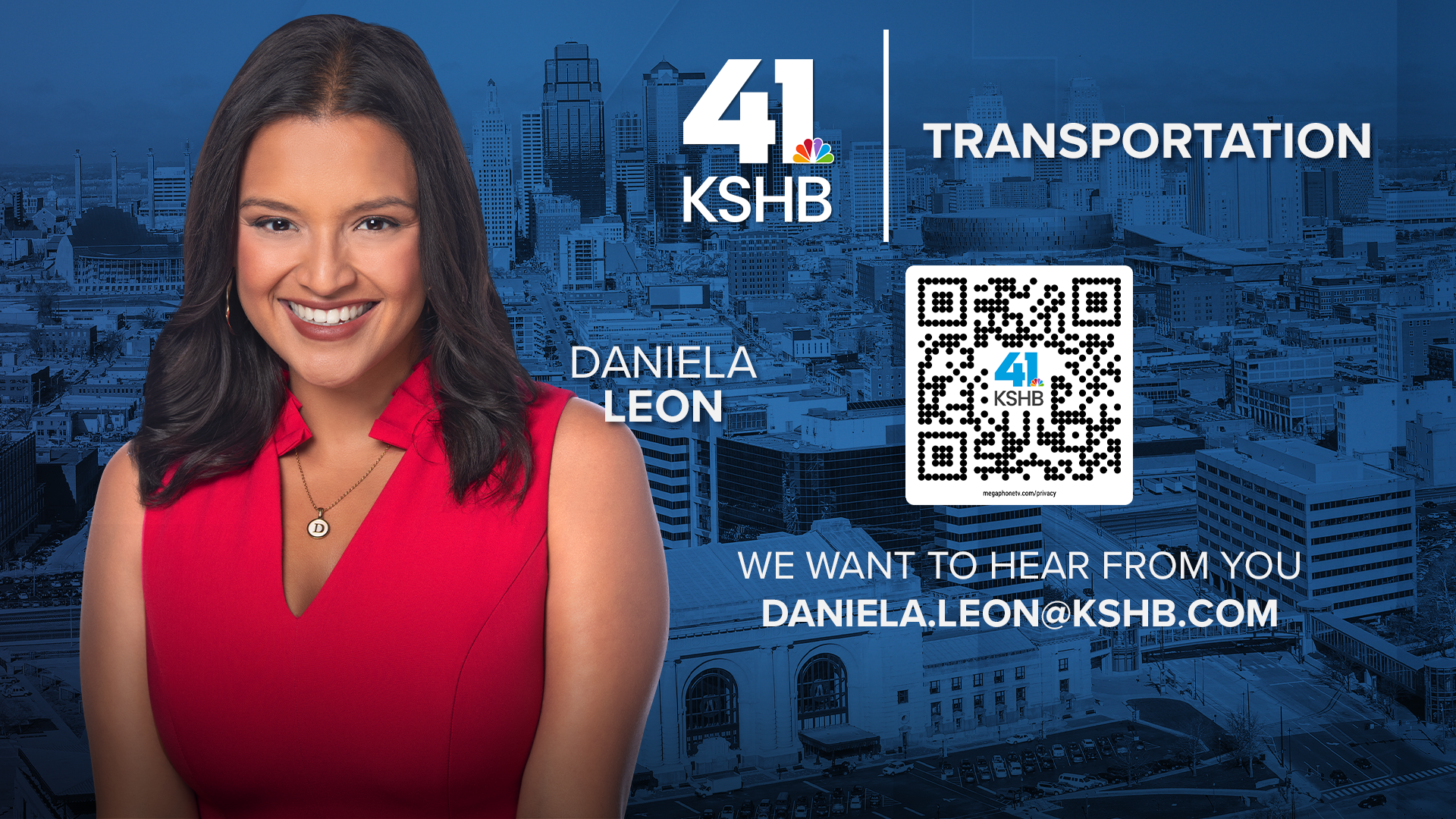KSHB 41 anchor/reporter Daniela Leon covers transportation-related issues in Kansas City. Share your story idea with Daniela.
—
For years, transit agencies across Kansas City, including the Kansas City Area Transportation Authority (KCATA), have been urging lawmakers to acquire additional money to pay for operational costs to meet World Cup demands.
“We don’t know what’s going to come out of the final funding package, but locally we had hoped for between 8 to 12 million,” said Chuck Ferguson, chief operations officer at KCATA. “With the end of the year approaching, it’s nearly impossible to add vehicles — most are already leased — and finding additional bus operators for the World Cup will be difficult.”
Public transit operations, like KCATA and the KC Streetcar, are poised to complement KC2026’s transportation plan, which has yet to be fully revealed. Over the summer, KSHB 41 learned of a bipartisan push from Kansas and Missouri lawmakers to secure federal funds for public transit.
However, federal funds to operate day-to-day costs, known as operational funding, are hard to secure compared to capital expenditures, where funding goes to new projects or programs.
Even if operational funding was secured, local agencies would have to match it dollar for dollar, unlike capital funding, where the government foots most of the bill.
This is separate from KCATA and the KCMO City Council approving a deal earlier this year to keep bus service stable in Kansas City for at least the next year.

"We're going to see a higher level of demand on transit than normal, and so as a result, the KCATA board and others have really kind of leaned on KCATA staff to figure it out," said Councilman Eric Bunch (District 4), who also serves on the KCATA Board of Commissioners.
In response, Ferguson said KCATA and Johnson County, Kansas, recently approached a Mid-America Regional Council (MARC) committee with federal funding opportunities through Congestion Mitigation and Air Quality (CMAQ) grants already in hand.
Bunch noted the CMAQ grant was originally awarded years ago to purchase a few extra electric buses. If the reallocation is approved, it could provide between $2 million and $3 million each for KCATA and Johnson County.

"We're probably looking at expanding existing services, paying some overtime, utilizing our full staff capabilities to operate extra services, if we can find the funding to pay for it," Ferguson said.
Ferguson and Bunch explained the funding could also allow the transit agency to boost frequency on its busiest routes — putting more buses in service at shorter intervals — and supplement streetcar operations during Fan Fest days to ease “crush loads” by helping passengers who can’t board overcrowded trains.
KCATA is also seeking funding from Missouri to potentially include ambassadors at primary stops.

"We're not going to avoid the masses packed in like sardines into the streetcar," Bunch said. "We have days like that already on the streetcar, where we have near what we call 'crush loads'... We're going to be great, though."
In February, KC2026, the nonprofit organization overseeing strategy and delivering host city duties for the World Cup, signed a lease for 200 buses to be used during the international event, making Kansas City the first of the 16 host cities to announce it had procured buses for the tournament.
In KC2026's latest transportation update, the organization outlined its goal in transporting the anticipated 650,000 World Cup visitors to matches, Kansas City International Airport, hotel centers, Fan Fest and more.
"KC2026 is also doing a lot of transportation programs as well, working with private contractors to deliver transit service more or less from high-density hotel areas to Fan Fest matches and be able to circulate people throughout the region, so it's not just KCATA taking on this burden," Bunch said. "KC2026 is also working very diligently on some extra public transportation during that time."

Reflecting on past events, such as the NFL Draft, Bunch said bus routes were rerouted for days with little warning to riders.
As a result, he said he has been insistent that transit agencies avoid similar disruptions during the World Cup and ensure any necessary route changes are clearly communicated well in advance.
Bunch noted the streetcar will continue running without reroutes, Amtrak service to Union Station is expected to increase, and KC2026 has been “communicative and transparent” in planning to maintain reliable service for Kansas Citians.
Citing confidence in KC2026's transportation plan, KCMO Mayor Quinton Lucas doesn't anticipate disruptions in bus services for KCATA during the tournament.

"Do I expect perfection? No. Do I expect good delivery of basic services each day here without games? Yes, and each day with games," Lucas said. "Let me be clear about World Cup 2026, we are excited. It will be a dynamic event. It's a big deal for Kansas City and our country and North America broadly. But we will continue to ... pave streets, provide public safety, respond to 311 calls, make sure the water is moving in every place that it needs to, and we'll still have buses going around Kansas City. That's what I expect from our regional KCATA board, and I know they'll be able to deliver."
KSHB 41 spoke with bus riders Tiera Brooks and Charles "Charlie" Russell.
Brooks was in a car accident in July and relies on the bus to go to work. She said the impact of what the World Cup will bring remains to be seen.
“It’s a wait-and-see. I know it’s going to be like super intense," Brooks said.

Russell believes the World Cup will bring a much-needed economic boost to Kansas City. As an infrequent bus rider, he doesn't anticipate the World Cup will impact his summer plans.
"I'm sure they will have it covered from downtown to the World Cup," Russell said. "I could either ride the bus or the KC Freedom Ride, and they'll take me anywhere I could go; I have options to go back and forth."

Unified Government Transportation Department Director Deasiray Bush shared a statement about how the lack of federal funding will impact the UG's services next summer.
"At this time, we have not received any additional funding to offset operations or expand service in preparation for the World Cup. Similar to KCATA, it is now too late in the procurement cycle to order buses or onboard the additional drivers that would be required to significantly increase service levels for the event. However, visitors and residents will still be able to rely on our current services, including our shared-ride IRIS program, which will continue to operate throughout the World Cup period."
Johnson County Transit leased 50 buses and bought 10 buses for World Cup services.
The buses are ADA-compliant, equipped with screens and cell phone charging ports, and will be used to operate a new route that will run from KCI to Johnson County, thanks to $2 million in funding through MARC.
Currently, the new airport route is planned to run every 20 minutes through Interstate 435, picking up travelers near the Overland Park Convention Center and Lenexa City Center with no other stops.
Johnson County is also looking at adding additional circulatory routes to get people in and around the county during the tournament to help support the local economy.

"We worked with partners to not only identify the need of being able to move people to places of interest within Johnson County, [but] we identified resources along with those partners to be able to create a circulatory route that would be an overlay on top of our existing transit system," said Johnson County Board Chairman Mike Kelly. "We're excited to talk more about that circulator route in the near future that would complement our direct-to-airport service.”
—






